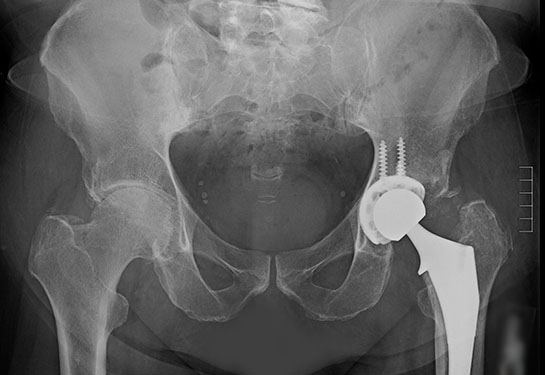Autoimmune disease or psychotic disorder?
Neuropsychiatric symptoms like hallucinations and nightmares can be signs of autoimmune disease
An increase in nightmares and hallucinations could signal the onset of autoimmune diseases such as lupus. Those are the findings of an international team of researchers from the University of Cambridge, King’s College London, UC Davis School of Medicine and other institutions.
The study was published in eClinicalMedicine, a publication of The Lancet.
The importance of recognizing these symptoms was highlighted by reports that some patients had initially been misdiagnosed — or even hospitalized — with a psychotic episode or suicidal ideation, which was only later found to be the first sign of their autoimmune disease.
James Alan Bourgeois, a professor in the UC Davis Department of Psychiatry and Behavioral Sciences and vice chair of Hospital Psychiatry Services at UC Davis Health, is a co-author of the study.
“Many people don’t know that neuropsychiatric symptoms, including confusion, hallucinations and vivid nightmares, can be part of autoimmune diseases like lupus,” Bourgeois said.
“If someone presents with new psychotic symptoms and has other autoimmune symptoms, and a family history of autoimmune disease, a provider is advised to clinically evaluate him or her for lupus before assuming a patient has schizophrenia or other primary psychotic disorder,” Bourgeois said.
Many people don’t know that neuropsychiatric symptoms, including confusion, hallucinations and vivid nightmares, can be part of autoimmune diseases like lupus.—James Alan Bourgeois, professor, Department of Psychiatry and Behavioral Sciences
Melanie Sloan is a researcher in the Department of Public Health and Primary Care at the University of Cambridge and lead author of the paper.
“It’s important that clinicians talk to their patients about these types of symptoms and spend time writing down each patient’s progression of symptoms,” Sloan said.
“Patients often know which symptoms are a bad sign that their disease is about to flare, but both patients and doctors can be reluctant to discuss mental health and neurological symptoms, particularly if they don’t realize that these can be a part of autoimmune diseases,” Sloan said.
Methods
The researchers surveyed 676 people living with lupus and 400 clinicians. They also conducted detailed interviews with 69 people living with systemic autoimmune rheumatic diseases (including lupus) and 50 clinicians.
In the study, the team asked patients about the timing of 29 neuropsychiatric symptoms (such as depression, hallucinations and loss of balance). In interviews, patients were also asked if they could list the order of symptoms that usually occurred when their disease was flaring.
One of the more common symptoms reported was disrupted dream sleep, experienced by three in five patients, a third of whom reported this symptom appearing over a year before the onset of lupus.
Just under one in four patients reported hallucinations, although for 85% of these, the symptoms did not appear until around the onset of the disease or later.
When the researchers interviewed the patients, however, they found three in five lupus patients and one in three with other rheumatology-related conditions reported increasingly disrupted sleep just before their hallucinations.
These nightmares were often vivid and distressing, involving being attacked, trapped, crushed or falling.
Patients experiencing hallucinations were reluctant to share their experiences. Many specialists said they had never considered nightmares and hallucinations as being related to disease flares.





